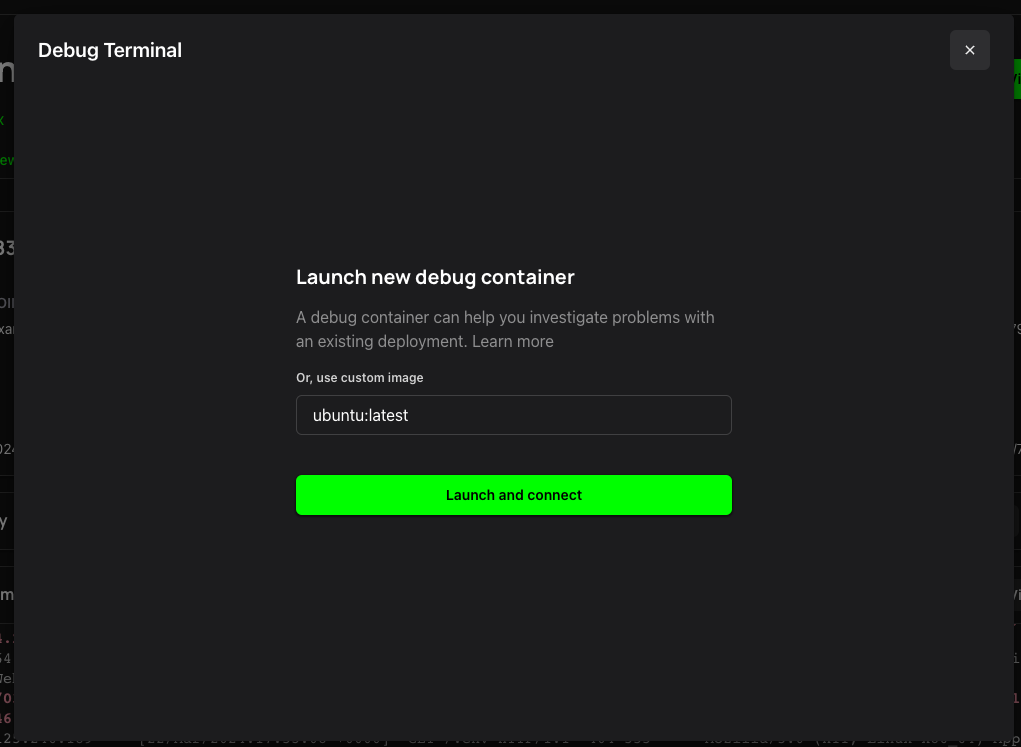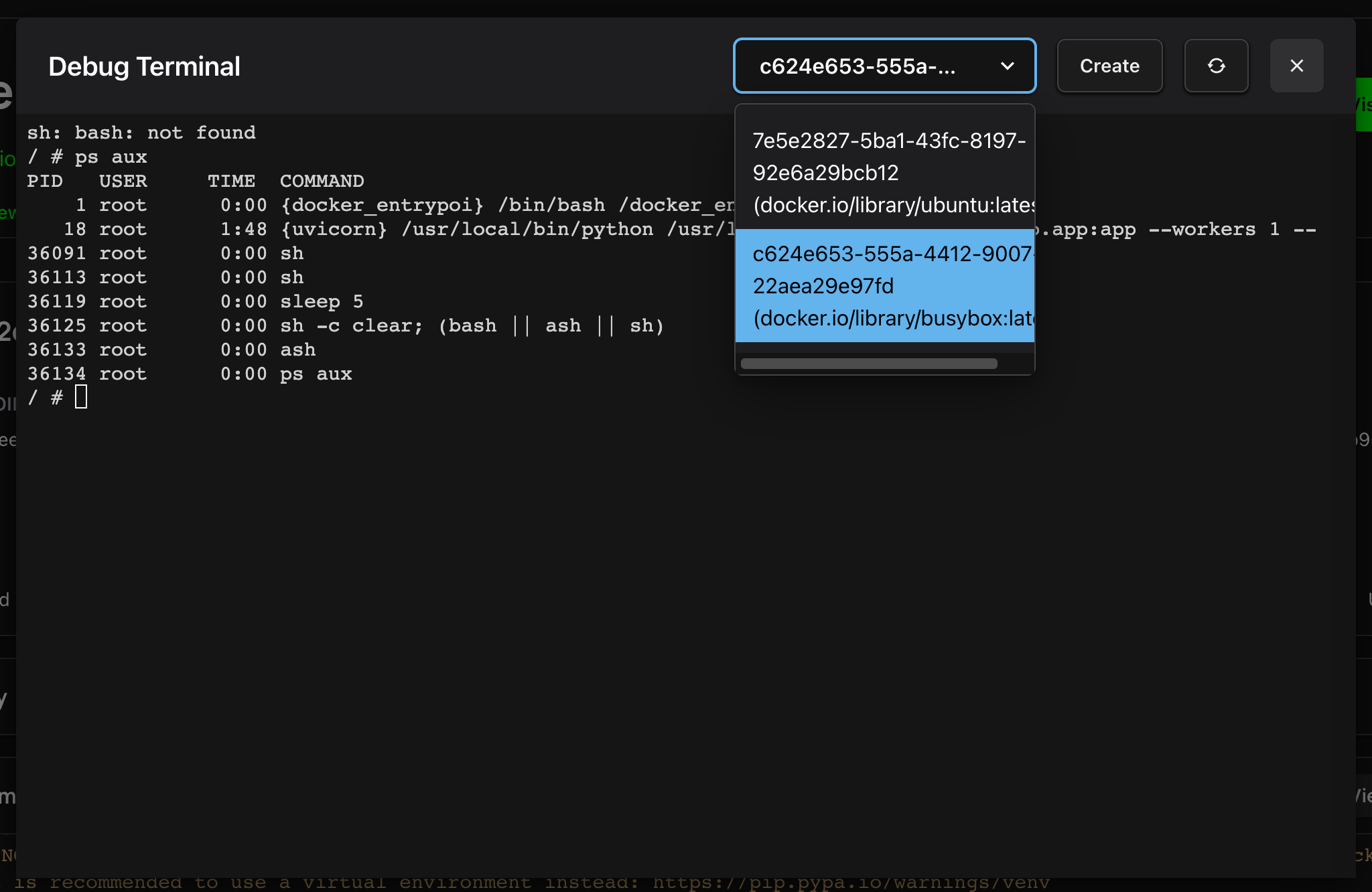Debug Terminal
Zeet's Debug Terminal allows you to spin up an ephemeral container with a custom image, providing a separate environment for advanced troubleshooting. The debug container shares the same process namespace as your deployed container, enabling comprehensive debugging capabilities.
Getting Started
Before using the Debug Terminal, ensure you have the following:
- An active Zeet account with a deployed project
- A Service Container or Job Container Project
- Familiarity with container concepts and debugging tools
When to Use the Debug Terminal
The Debug Terminal is particularly useful in scenarios such as:
- Debugging crashed or unresponsive containers
- Installing additional debugging tools not present in the base image
- Performing comprehensive troubleshooting without affecting the live container
For simpler troubleshooting tasks, consider using the Terminal feature instead.
Accessing the Debug Terminal
To access the Debug Terminal, follow these steps:
- Log in to your Zeet account.
- Navigate to the project you want to debug.
- Go to the Overview tab of the Project details page.
- Click on the "Debug" button.

Using the Debug Terminal
Once you've accessed the Debug Terminal, you can specify a custom container image and start debugging your application. Here are some common use cases:
- Using a custom container image with specific debugging tools:

# Specify a custom image with debugging tools
FROM ubuntu:latest
RUN apt-get update && apt-get install -y curl htop
- Accessing the same files and network as the deployed container:
# Inspect files
$ ls -l /path/to/files
# Check network connectivity
$ curl http://api.example.com/health
- Performing comprehensive troubleshooting:
# View running processes
$ top
# Monitor resource usage
$ htop
Remember that the Debug Terminal spins up a separate container, so any changes made during the debugging session won't affect your live container directly.

Best Practices
To make the most out of the Debug Terminal, keep these best practices in mind:
- Use the Debug Terminal for complex troubleshooting scenarios that require additional tools or a separate environment.
- For simpler troubleshooting tasks, consider using the Terminal feature instead.
- Ensure that any insights gained during the debugging session are documented and incorporated into your project's main branch to maintain consistency.